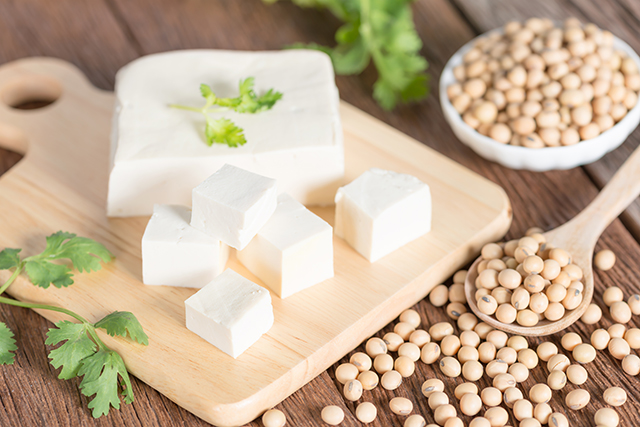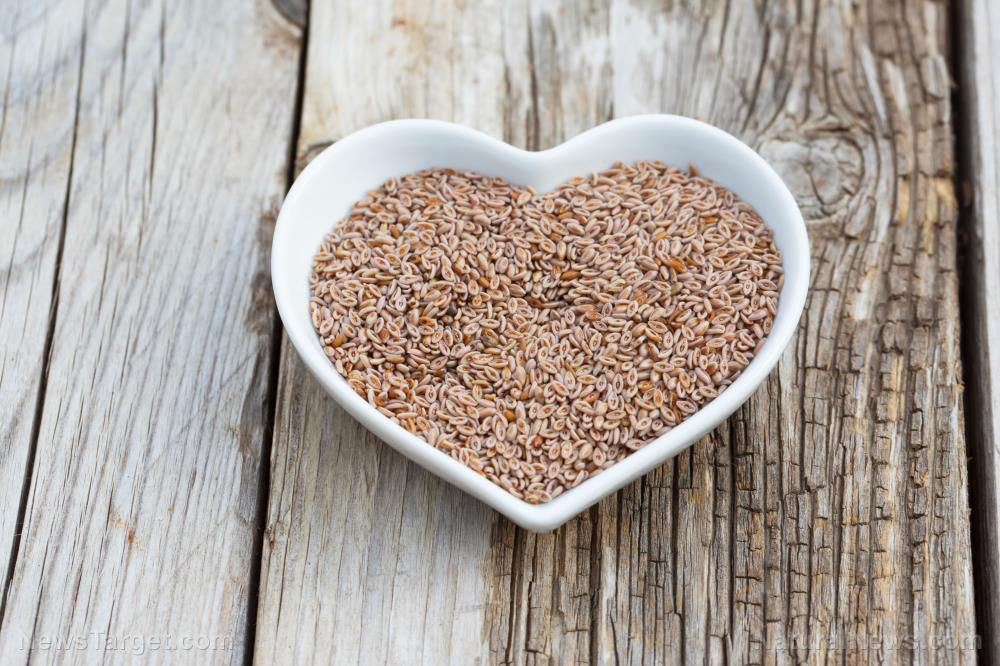 Parler
Parler Gab
Gab
- Tofu, or bean curd, originated in China over 2,000 years ago during the Han Dynasty. It spread across Asia, becoming a staple in Buddhist vegetarian diets, and gained global popularity in the 20th century.
- A complete source of plant-based protein, tofu contains all essential amino acids, heart-healthy fats, isoflavones (linked to hormonal balance) and key minerals like calcium, iron and magnesium. It is low in calories and carbs.
- Tofu can also lower LDL cholesterol and support bone health. Concerns include GMOs (choose organic), potential thyroid effects in excess, and its antinutrient content (minimal impact in balanced diets).
- Organic tofu doesn't contain GMOs and harmful pesticides like glyphosate. Reputable brands also minimize heavy metal contamination.
- Versatile in texture (silken, soft, firm), tofu works in savory (stir-fries, mapo tofu) and sweet dishes (puddings, mousse). It is widely used in vegan and Asian cuisines.
Tofu: a powerhouse of nutrition
Tofu, also known as bean curd, is made by coagulating soy milk and pressing the resulting curds into soft, firm or extra-firm blocks. Its origins can be traced back over to ancient China, where it was first documented during the Han Dynasty (206 BCE–220 CE). According to legend, tofu was accidentally discovered by a Chinese cook who added nigari (a natural coagulant derived from seawater) to soy milk, causing it to solidify. From China, tofu spread to Japan, Korea and Southeast Asia, becoming a dietary cornerstone in Buddhist vegetarian traditions. It wasn't until the mid-20th century that tofu gained popularity in the Western world, largely due to growing interest in plant-based diets and Asian cuisine. Today, tofu is widely available in supermarkets and health food stores globally. Tofu is a nutrient-dense food and is an excellent source of plant-based protein, healthy fats, vitamins and minerals. Here's a breakdown of its nutritional benefits:- High-quality protein - Tofu contains all nine essential amino acids, making it a complete protein comparable to animal-based sources. A 100-gram serving of tofu provides about eight to ten grams of protein.
- Rich in isoflavones - These plant compounds, particularly genistein and daidzein, act as phytoestrogens and can support heart health, bone density and hormonal balance.
- Low in calories and carbs - Containing only 70-100 calories per 100 grams, tofu is a great food for weight management and low-carb diets.
- Packed with minerals - Tofu is an excellent source of calcium (especially if calcium sulfate is used as a coagulant), iron, magnesium, phosphorus and zinc.
- Heart-healthy fats - Tofu contains healthy polyunsaturated fats, including omega-3 fatty acids, which support cardiovascular health.
Why choose organic
Tofu is generally considered to be a highly nutritious food. It offers several health benefits, according to research. Studies suggest that its soy protein content may help reduce the risk of heart disease by helping lower LDL ("bad") cholesterol levels. It also contains calcium and magnesium, which helps maintain strong bones. Some women may also find relief from menopausal symptoms due to the isoflavones in tofu, which can aid in hormonal balance. Moreover, research indicates that soy foods have anticancer properties that can help lower the risk of breast and prostate cancers, though findings in this area remain mixed. (Related: 12 Potent ANTICANCER agents found in edible plants.) However, most conventional soybeans are genetically modified (GMO); choosing organic tofu ensures non-GMO sourcing. While tofu contains phytoestrogens like isoflavones, which may offer benefits for some individuals, excessive intake could theoretically affect thyroid function in sensitive people, so moderate consumption is advised. Tofu may also contain antinutrients such as phytates, which can reduce mineral absorption, but this is rarely a concern when following a balanced diet. Conventionally grown soybeans are often treated with pesticides like glyphosate, a controversial herbicide linked to serious health issues. Organic tofu is a safer choice, as it avoids synthetic pesticides and GMOs. Heavy metal contamination (such as cadmium and lead) can be a concern with soy grown in polluted regions, but reputable brands test for these contaminants. Look for lab-verified and certified organic tofu from trusted sources to minimize your heavy metal exposure.Culinary uses and recipes
Tofu's neutral taste and adaptable texture make it perfect for savory and sweet dishes. Here are some popular ways to use tofu in dishes:- Silken tofu - Soft and creamy, it's ideal for smoothies, desserts and soups.
- Soft tofu - Great for scrambles, miso soup or steamed dishes.
- Firm/extra-firm tofu - Best for grilling, stir-fries, baking and frying.
- Mapo tofu - Chinese spicy tofu with minced meat or mushrooms
- Tofu scramble - A vegan alternative to scrambled eggs
- Agedashi tofu - Japanese fried tofu in dashi broth
- Tofu stir-fry - Firm tofu with vegetables and soy-based sauces
- Tofu desserts - Silken tofu in puddings, cheesecakes or mousse
More related stories:
Study: Veganism more harmful to the environment than limited meat consumption.
Dr. Kaayla Daniel's "The Whole Soy Story" reveals the dark side of America's favorite health food.
Plants against cancer: Eighteen 100% natural phytochemicals that prevent and treat cancers.
Sources include: Brighteon.AI NaturalNews.com Brighteon.comBy News Editors // Share
Super sprouts: Creative ways to incorporate sprouts into your meals
By HRS Editors // Share
Hawthorn: A timeless medicinal marvel
By Ava Grace // Share
Turkey: A protein-packed superfood with centuries of tradition behind it
By Laura Harris // Share
Governments continue to obscure COVID-19 vaccine data amid rising concerns over excess deaths
By patricklewis // Share
Tech giant Microsoft backs EXTINCTION with its support of carbon capture programs
By ramontomeydw // Share
Germany to resume arms exports to Israel despite repeated ceasefire violations
By isabelle // Share










